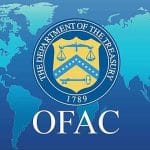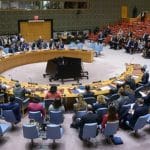As from January 1, 2025, travel will become possible without land border controls to and between Bulgaria and Romania. This follows a unanimous decision on December 12 by the interior ministers of the EU member states to lift remaining Schengen area border controls with the two member states. The decision by the European Council will benefit the economies of Bulgaria and Romania and allow faster journeys home for the millions of Bulgarians and Romanians living and traveling in other EU countries, as well as remove most if not all customs controls (but not all technical checks) for trucks.
“This important step completes the full entry of both countries into the Schengen area,” the European Commission said in a press release. “This not only strengthens the Schengen area, but it will further strengthen the internal market, increase travel, trade and tourism. A robust Schengen area reinforces the EU’s unity and makes the EU stronger at a global scale,” it added.
“Today is a day of joy for all Bulgarians, Romanians and our entire Union,” European Commission President Ursula von der Leyen said on December 12. “Both Member States will fully join the world’s largest free movement area. This is important for all of us, European citizens and businesses. Together we will reap the benefits of a stronger and more connected Union,” she added.

European Parliament President Roberta Metsola also welcomed the full accession of Bulgaria and Romania into the Schengen area. Opening the December plenary session in Strasbourg, Metsola said she was pleased that Romania and Bulgaria will finally join the Schengen free movement zone on January 1, 2025. She said that Parliament, the staunchest and most vocal ally in the two countries’ efforts to join Schengen, has always understood that a stronger Schengen means a safer and more united Europe, adding that “with this historic decisions, we are showing what a united Europe can achieve, bringing people closer together, breaking down barriers, and making the promise of Europe a little bit more tangible for everyone.”
Romania’s President Klaus Iohannis warmly welcomed the positive decision taken on December 12 in Brussels regarding the full accession of Romania to the Schengen area after years of full membership being blocked by several Central European countries. “Romanian citizens are looking forward to be a part of this border-free space of free movement. Our accession will strengthen EU security and unity,” he wrote on X.
Since last December, when the Council decided to welcome Romania and Bulgaria into the Schengen area, both Member States have taken all necessary measures to ensure a smooth application of the Schengen rules as from March 31, 2024. On that date, the controls at the internal air and sea borders were lifted and the Schengen rules started to apply including on issuing Schengen visas, making air and maritime travel to/from the EU simpler.
The Cooperation Frameworks that the Commission launched in March this year with Bulgaria and Romania build on the successful implementation of the pilot projects for fast asylum and return procedures, the Commission said, adding that both countries will further support joint European efforts to address EU security at the EU’s external borders and tackle migratory challenges. The Commission said it will also continue to offer financial support and Frontex assistance to both Member States. For Frontex, the hot spots have long been the EU borders with Turkey and Serbia.
The Commission pointed out in the 2024 State of Schengen report that the zone stands strong and remains the most visited destination in the world. Guaranteeing smooth and secure travel to a region with a population of almost 450 million people, the Schengen area is essential for the EU, its people and its businesses. With Bulgaria and Romania now fully part of Schengen, we are making another crucial step to build a strong and connected Union, the report noted.
Still outside looking in
The latest decision still leaves EU members Cyprus and Ireland outside the current Schengen area grouping, which is slightly broader than the EU itself as it already includes the European Free Trade Association (EFTA) members Iceland, Norway, Switzerland and Lichtenstein. The territory of four European microstates – Andorra, Monaco, San Marino and Vatican City – is de facto included in the Schengen area due to their small size and difficulty of maintaining active border controls.








